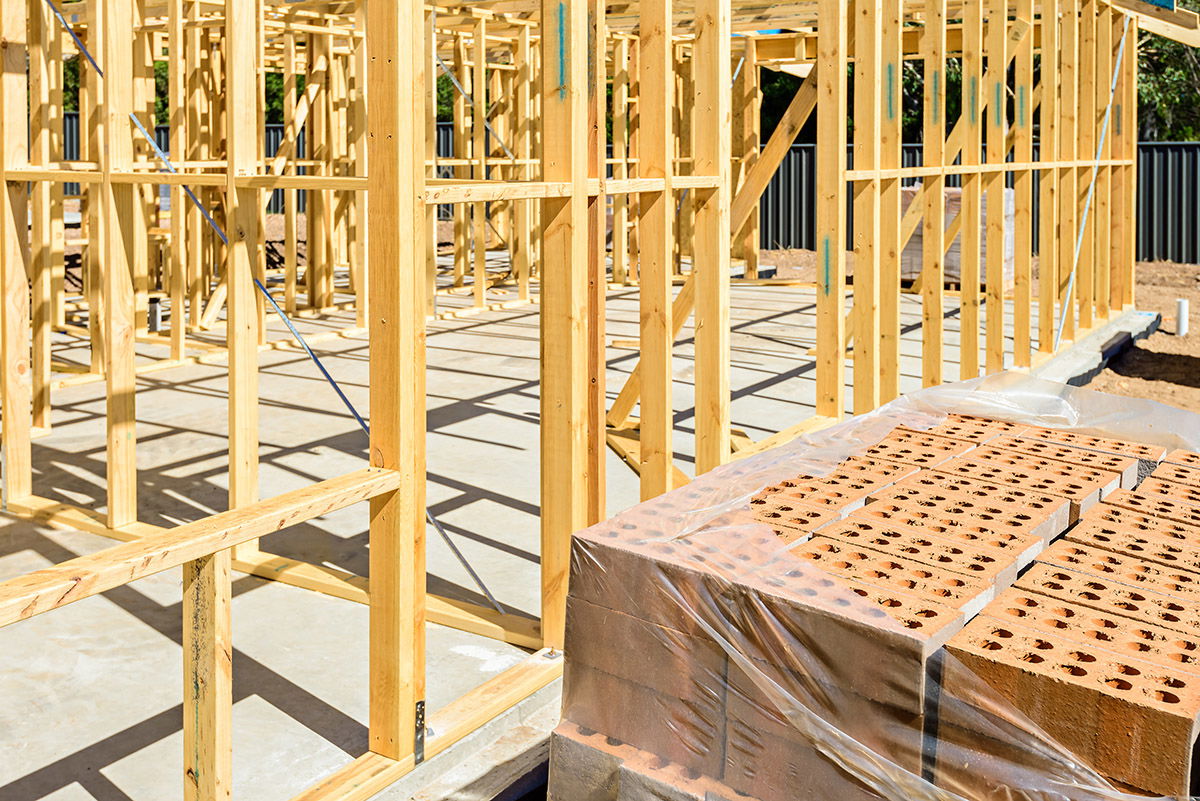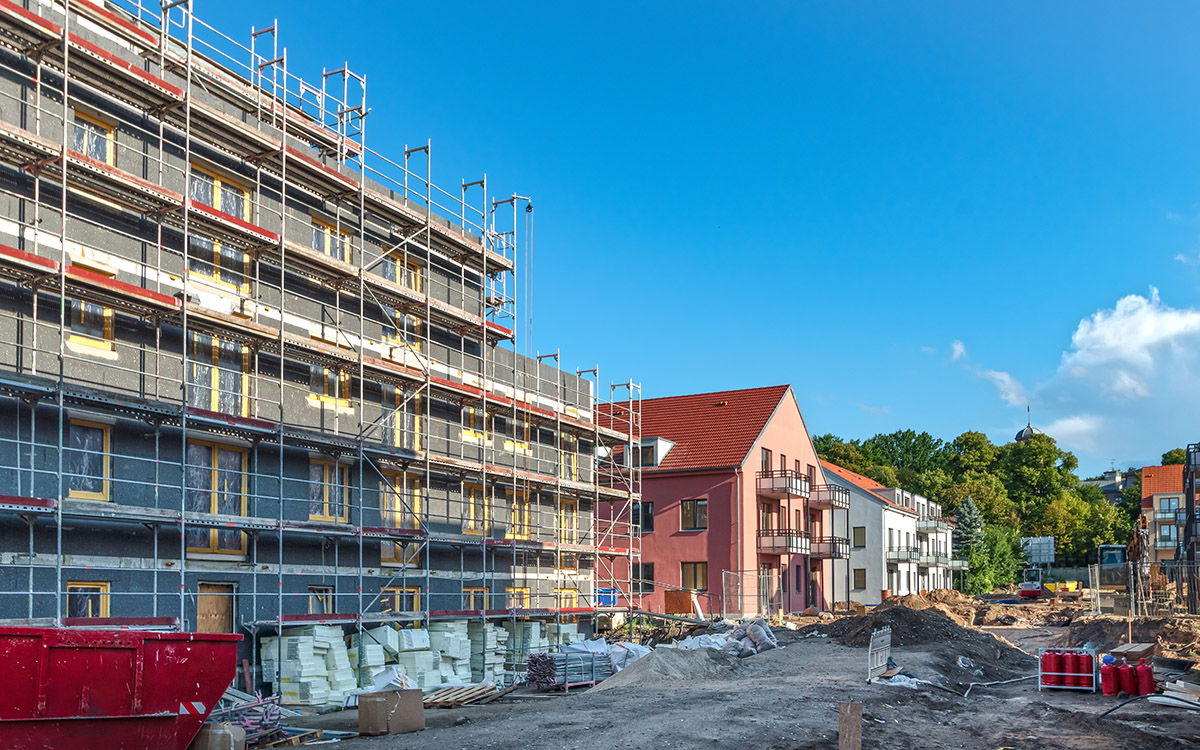Mortgages for new build properties
There are lots of good reasons to buy a new home but new build mortgages can throw up complications. We take a look at the issues you need to be aware of so you’re in the know from the word go.
Let our specialist advisers help you navigate the challenges of purchasing a new build property, avoiding the many pitfalls along the way.

What is a new build mortgage?
A new build mortgage is a home loan specifically designed for purchasing newly constructed properties (typically built within the last two years) or those being built “off-plan.” Mortgage lenders may also classify extensively renovated properties as new builds.
The pros and cons of buying a new build property
While investing in a new build property offers many benefits to the buyer, it is important to be aware of the potential drawbacks before exchanging contracts, which is the point you will be committed to buy, or risk losing your deposit.

The benefits of buying a new build property
New homes are generally in better condition than older properties, requiring less maintenance and reducing the likelihood of costly repairs in the near future.
New builds often use advanced designs and building materials, making them more energy-efficient, leading to lower utility bills.
Buyers of new build and off-plan properties can often specify their preferred finishes, fixtures and fittings such as kitchen appliances to be provided in the build.
Many new homes come with a 10-year warranty such as the NHBC Buildmark, providing peace of mind against construction defects.
Various government and developer schemes can help buyers with smaller deposits or modest incomes.
You avoid the delays and complications of waiting for the seller to find a new home, and some developers will even buy your existing home in part-exchange.

The drawbacks of buying a new build property
New build homes often come at a premium compared to older properties, so make sure you don’t over-pay.
If you don’t qualify for incentive schemes, you may need a larger deposit, with some High Street lenders requiring deposits as high as 15-20% for new flats and apartments.
New build developments often maximise land use, resulting in smaller plot sizes and gardens.
Delays in completing the build of your property can cause your mortgage offer to expire, requiring you to re-apply. Most mortgage offers are valid for six months, but some lenders may extend them.
Developers might request reservation fees or pressure you to use their in-house mortgage broker (you are not obliged to do so).
The cost of any fixtures and fittings installed in the property at sale, such as new kitchens or furnishings, count towards the total sale price and are therefore taken into account for Stamp Duty Land Tax (SDLT). This is especially important if these costs push you into a higher stamp duty bracket.

Incentive schemes for new build properties
Several schemes can make buying a new build more accessible. These include:
- Deposit Unlock: Allows you to buy a new home with only a 5% deposit using a 95% loan-to-value (LTV) mortgage. Developers pay for a mortgage indemnity to encourage lenders to offer these high LTV mortgages.
- Mortgage Guarantee Scheme: Backed by the government, this scheme helps buyers with low deposits (minimum 5%) purchase new or existing properties.
- Shared Ownership: You buy a portion of the property (usually 25% to 75%) and pay rent to a housing association on the remaining share. Your deposit is based on the portion you buy.
- First Homes Scheme (England only): Designed for first-time buyers and key workers, offering discounts of 30% to 50% on homes in their local area.
How to apply for a new build mortgage
1. Check what you can afford
Contact a mortgage broker to see how much you can borrow and which deals you might be eligible for.
2. Get a Mortgage in Principle (MIP)
Obtain a Mortgage in Principle (also known as a Decision in Principle or DIP). This provides an estimate of how much a lender might be willing to lend you based on your financial information. Developers often require this as proof that you can proceed.
3. Apply for your new build mortgage
Once you’ve found a new build house you want to buy, go back to your mortgage broker to make your mortgage application. Speaking to a mortgage broker can make this process quicker and easier.
4. Secure your mortgage offer
The lender will issue a mortgage offer once it has carried out a mortgage valuation survey and approved your application. You’ll then be ready to exchange, to pay a deposit and set a completion date, although this may be moved back if there are any delays.
5. Completion
Once your property is ready, you’ll be able to complete and move into your new home.
How much can I borrow?

Can you get a new build mortgage with bad credit?
It is possible to get a new build mortgage even with a less-than-perfect credit history. Lenders will consider the type and severity of the issue, its impact on your credit score, and how long ago it occurred.
We also have close working relationships with lenders that specialise in helping borrowers with bad credit. While you may face higher interest rates or borrowing limitations, it’s worth exploring your options with a mortgage broker.
We're here to help
Got questions or need assistance? We’re here to help. Whether you’re looking for mortgage advice, have specific queries, or just want to discuss your options, our expert team is ready to assist you. Reach out using the form here, and we’ll get back to you as soon as possible. Let’s connect and start making your homeownership goals a reality.
To speak to an adviser, please call us on 020 8421 7999

Why use an independent mortgage broker?
While you can apply for a mortgage directly, a specialist broker such as Freelancer Financials offers significant advantages:
- Impartial advice
A broker is independent and works for you, not the lender or developer - Market access
Brokers can access a wider range of mortgage deals, including those not available directly to consumers - Expertise
Brokers understand the nuances of new build mortgages and can guide you through the process - Application support
They can help you prepare your application and ensure you have all the necessary documentation - Negotiating power
A broker can negotiate with lenders on your behalf
Important
You are not obliged to use the developer’s recommended “in-house” mortgage broker. It’s generally best to choose a broker who is independent of the building process.
Buying a new build can be a smooth process with the right knowledge and support. By understanding the specific requirements of new build mortgages and working with a qualified mortgage broker, you can confidently navigate the path to owning your brand-new home.
This is where we can help! Our team of mortgage experts has extensive experience arranging new-build mortgages and has helped many people in similar situations secure the lending they need.
Just make an enquiry, and a member of our team will get in touch to start the process.
Ready to secure the mortgage you deserve?
Get in touch with our expert team today and take the first step toward a mortgage that truly reflects your earning potential. Contact us now and let’s make it happen.



